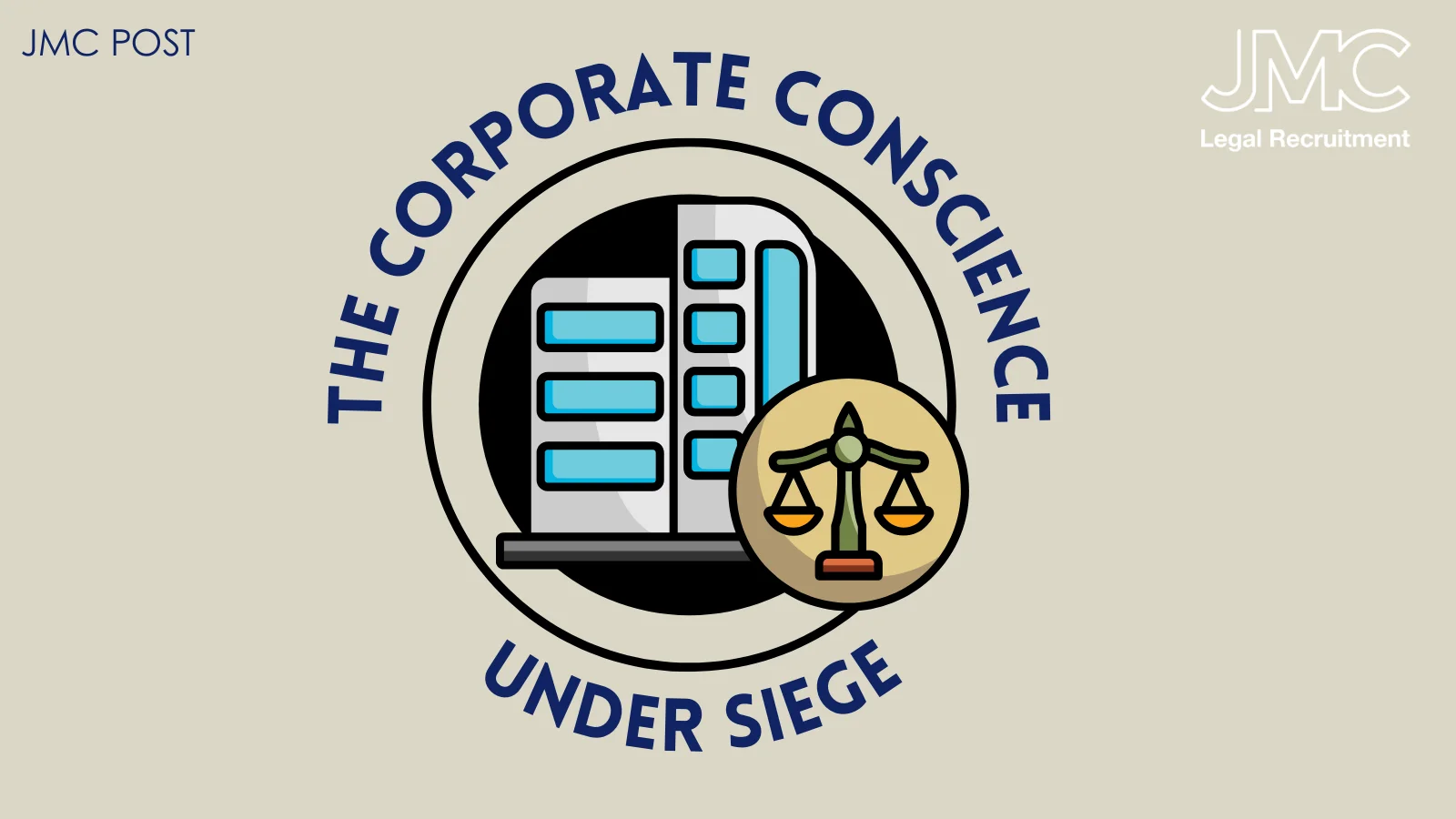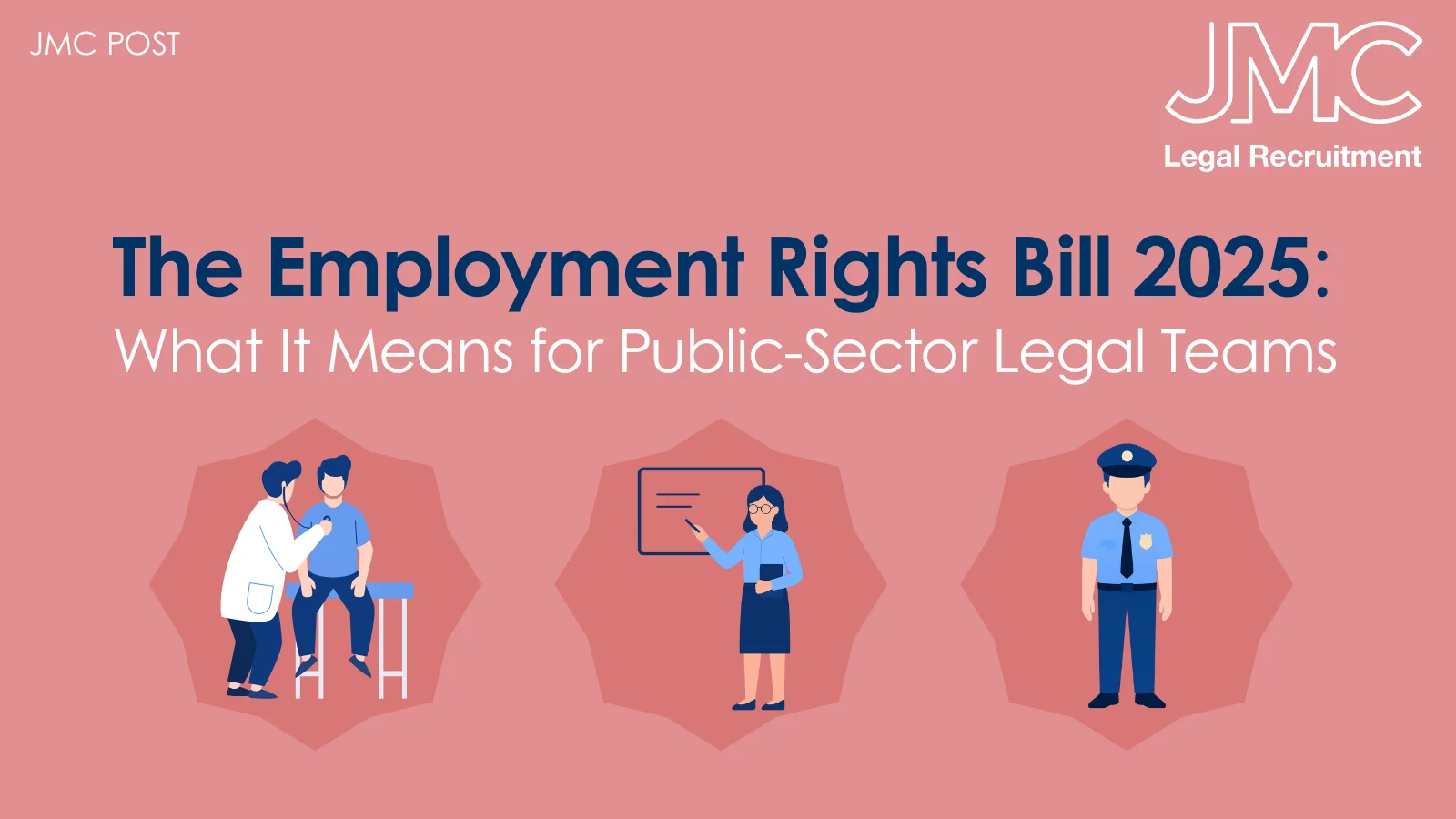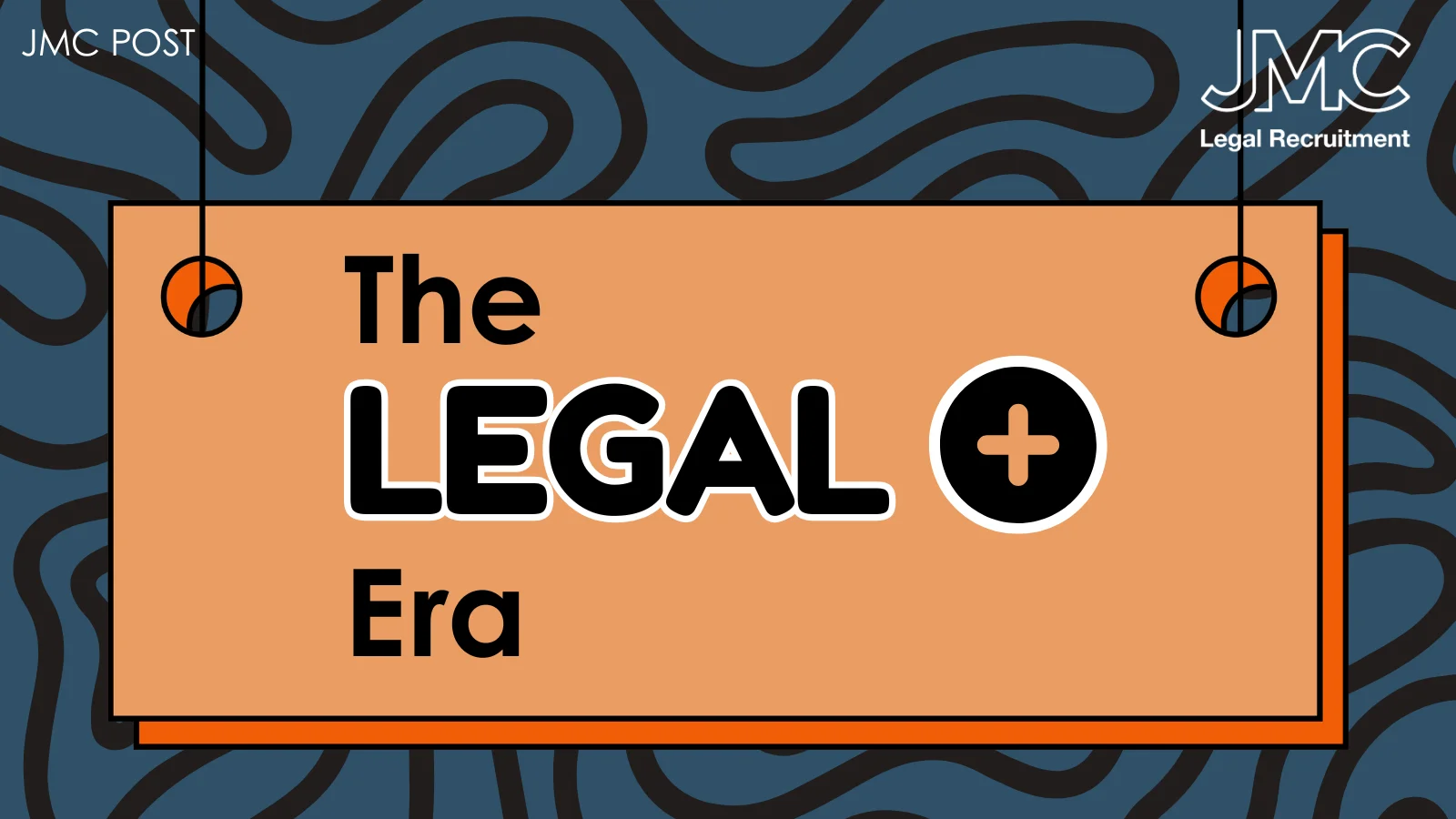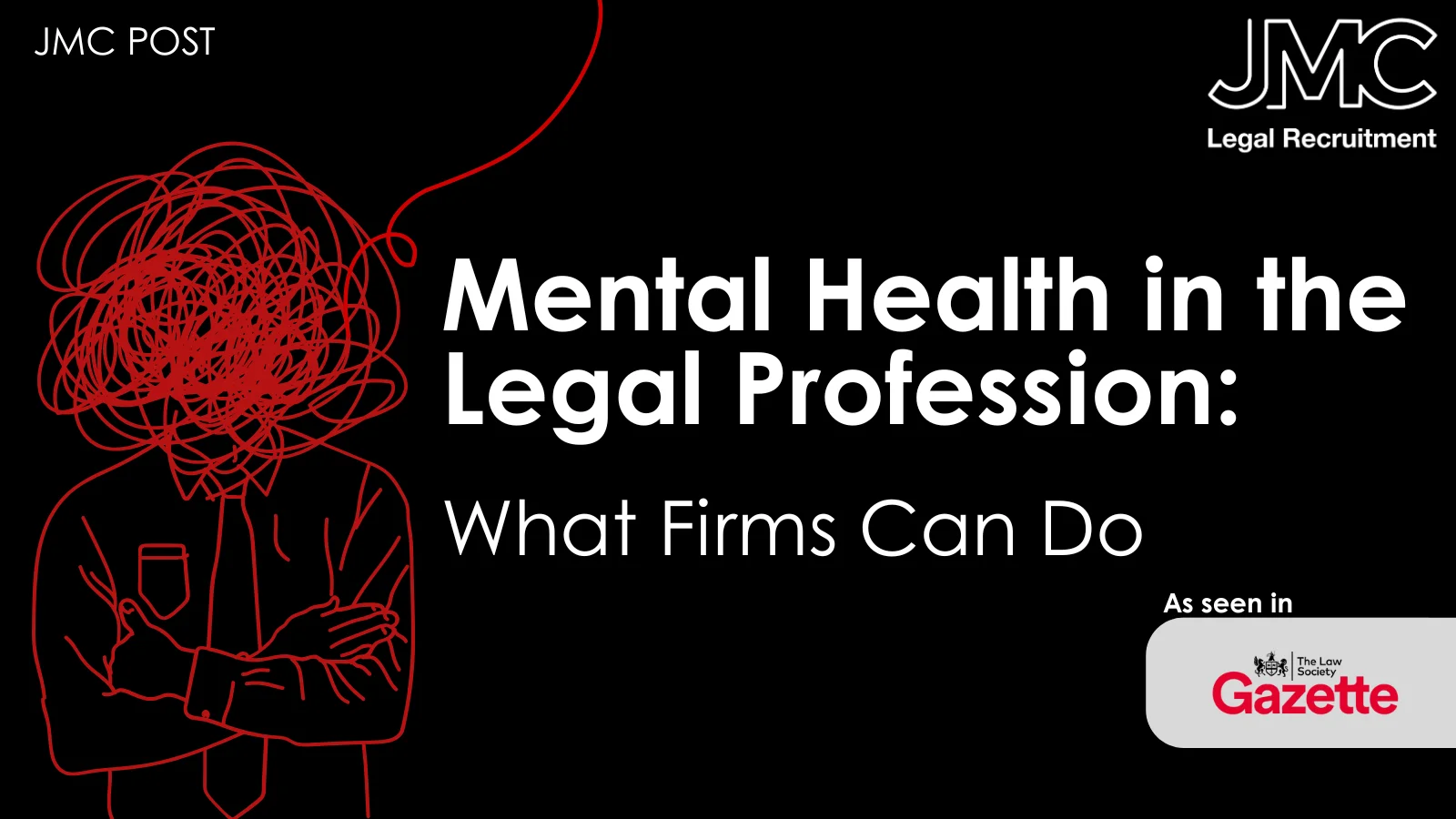
The Employment Rights Bill 2025: Why Public-Sector Legal Teams Can’t Afford to Wait
07 Nov, 20255 minutes
The Employment Rights Bill 2025: Why Public-Sector Legal Teams Can’t Afford to Wait
How Employment Law Reforms Are Transforming Public-Sector Legal Roles
There are employment law updates, and then there are game changers. The Employment Rights Bill (ERB) 2025, expected to become law in Autumn 2025, falls squarely into the latter category. It signals the most significant workplace rights upheaval in the UK in over a decade.
From a dramatic increase in dismissal risk to a fundamental shift in managing harassment and flexible work, the ERB isn't just a list of new rules, it's a re-wiring of how organisations manage people, performance, and, most critically, legal risk.
At JMC Legal Recruitment, we aren't just watching this change occur. We are on the frontline, seeing the immediate impact across the market. The most proactive organisations, especially those in the public sector, are moving now. They aren't waiting for the Royal Assent; they are urgently searching for dedicated employment legal counsel and embedded HR legal specialists to build the capability needed to navigate this complex new terrain.
Understanding the Non-Negotiable Core of the ERB 2025
The reforms are broad, but here’s our view on the non-negotiable areas public-sector legal teams need to master:
- The Unfair Dismissal Reset: The two-year service requirement for claiming unfair dismissal is being removed, making it a 'day one' right for new employees. While a new statutory probation period offers some protection, the risk of a legal claim has just skyrocketed for every new hire.
- Flexible Working as the Default: The right to request flexible working will be a day one right, and the employer's clock for responding will shorten. For large, shift-based, public-facing organisations (NHS, Police, Local Authorities), this demands a wholesale redesign of resource planning and refusal justification.
- The "All Reasonable Steps" Harassment Duty: Employers will have a strengthened duty to take 'all reasonable steps' to prevent sexual harassment. Crucially, this extends to liability for harassment by third parties (patients, service users, citizens). For public-sector bodies with high public interaction, this is a major new compliance and training burden.
- Extended Tribunal Timeframes: Giving employees longer to bring claims will inevitably lead to an increase in Employment Tribunal case volumes and a longer tail of legacy risk for public bodies to manage.
This is a fundamental shift. It’s moving employment law from a system that historically protected long-serving employees to one that empowers every employee from day one.
Why the Public Sector Needs Specialist Employment Legal Counsel Now
The public sector, from Police Forces and NHS Trusts to Local Authorities and Education Institutions, operates under an added layer of complexity. Employment contracts often intersect with statutory duties, political oversight, and service-specific regulations.
This complexity is precisely why we are seeing a spike in legal counsel vacancies within regulated bodies.
One major client, a large regulated public body, didn't just wait; they proactively created a new full-time Employment Legal Counsel role within their HR operations team, with a mandate far beyond just policy review. This role isn't a cost, it’s an investment in resilience. Their lawyers are being tasked with:
- Proactive Capability Building: Upskilling HR, people teams, and line managers before the legislation lands to manage the changes effectively and consistently.
- Triple-Threat Risk Mitigation: Ensuring compliance across legal, operational, and reputational fronts, especially in high-profile cases involving unfair dismissal or harassment.
- Embedding Long-Term Resilience: Designing internal processes and data-tracking systems that allow the organisation to adapt to future employment law reforms independently.
Employment law is no longer about simply keeping pace with regulation; it’s about leading change and protecting the public interest.
Why In House Law Jobs and Vacancies are Surging
The three core drivers behind the surging demand for in-house employment lawyers are clear:
- Volume and Complexity of Change: The Bill touches every HR process. In-house legal advice is now the first line of defence for interpreting the reforms, training the entire organisation, and redesigning the policy backbone.
- Mitigating Litigation and Reputational Risk: Longer tribunal timeframes and wider harassment duties mean public bodies face higher exposure to costly, public, and reputation-damaging claims. Early, internal legal intervention is critical.
- The Need for Sustainable Capability: Relying solely on expensive external counsel is no longer viable. Embedding expertise internally ensures compliance is a daily operational habit, not a panic measure.
For experienced employment lawyers, particularly those in private practice, this is a rare and impactful opportunity. Public bodies are increasingly open to hiring for in house legal jobs and flexible fractional GC models, offering a chance to influence organisational policy, culture, and workforce strategy at scale. You get to shape lasting change, rather than just reacting to litigation.
Strategic Priorities for Public Sector Legal Teams (2025-2027)
Drawing on our real-time conversations with senior in-house legal counsel, here are the four non-negotiable priorities for the coming year:
- Audit and Stress-Test Frameworks: Don't just tick boxes. Map every disciplinary, grievance, and flexible working process against the new 'day one' rights. Identify and model worst-case scenarios for unfair dismissal claims.
- Make Training Non-Negotiable: A knowledge gap is your biggest compliance risk. Co-design robust training programmes with HR and L&D to build confidence and, most importantly, consistency across all line managers.
- Clarify the HR-Legal Partnership: HR manages the process; Legal manages the risk. Clear handoffs, agreed upon before issues escalate, are essential to prevent duplication and ensure expert input at the critical moment.
- Future-Proof the Legal Structure: This is not the final employment law reform. Investing in a resilient HR-Legal partnership, supported by the right legal technology and data tracking, will be the factor that defines your ability to adapt to future regulatory shifts faster than your peers.
Where JMC Legal Recruitment Adds Value
As a market leader in in-house law jobs and legal counsel placements, JMC is uniquely positioned at the cross-section of public-sector demand and specialist legal talent.
We offer more than just recruitment we offer the real-time market intelligence you need to act strategically:
- Emerging Trend Data: Identifying which public bodies are hiring first, and for which specific reforms.
- Remuneration Benchmarks: Providing clarity on competitive salaries for these crucial, new in-house roles.
- Strategic Talent Access: Connecting organisations with private-practice lawyers who possess the operational and advisory experience needed to lead this transformation.
The Employment Rights Bill is a powerful sign of a new era of employee empowerment. For public bodies, it is a clear call to action to modernise policies, invest in people, and strengthen legal governance.
We help both organisations build this internal legal capability, and lawyers find the roles where they can drive the greatest impact.
Are you a public sector legal leader ready to future-proof your organisation, or an employment lawyer looking to make a strategic move in-house? I'm happy to discuss the market data and specific roles we are seeing right now.
Daniel Tudor, Principal Consultant – In-House Legal Recruitment
Frequently Asked Questions (FAQ)
Q: When will the Employment Rights Bill 2025 take effect?
A: The Bill is expected to achieve Royal Assent in late 2025. However, the major changes, including 'day one' unfair dismissal rights and the new harassment duties will be implemented in staggered phases throughout 2026 and 2027 following further consultation. Employers need to prepare now because compliance requires significant changes to policy and training.
Q: What does 'day one' unfair dismissal mean?
A: Currently, employees must have two years of continuous service to claim ordinary unfair dismissal. The ERB will remove this two-year rule, giving employees the right to bring a claim from their first day of employment. This right is expected to be subject to a new statutory probation period (potentially nine months) during which a modified, 'lighter touch' dismissal process will apply.
Q: What is the biggest change regarding harassment?
A: The biggest change is the strengthening of the employer's duty from taking 'reasonable steps' to taking 'all reasonable steps' to prevent sexual harassment. Crucially, the Bill also reintroduces liability for third-party harassment (e.g., from clients, service users, or citizens), a major risk factor for public-facing organisations.
Q: Why are there suddenly so many in house legal jobs focused on employment law?
A: Demand is surging because the ERB introduces over 28 individual reforms, touching every aspect of the employee lifecycle. Organisations require dedicated employment legal counsel to proactively interpret these complex rules, train managers, and rewrite internal policies to mitigate the inevitable increase in legal risk and tribunal claims. External counsel alone cannot provide the embedded, day-to-day resilience required.
Looking for wider reading on in-house legal hiring and careers? Have a look at some of our other articles below:
How to Read In House Legal Job Specs
Not All Gen Z Lawyers Are Climbing the Private Practice Ladder
General Counsel vs Legal Counsel- What's the difference and what does your business need?



